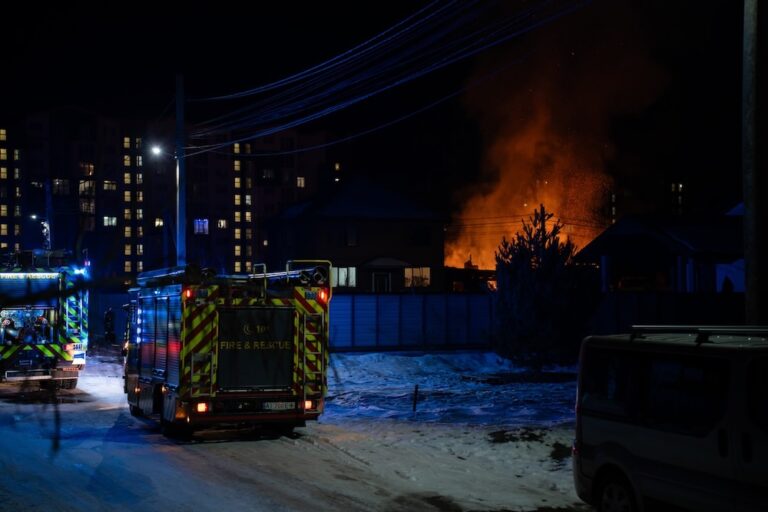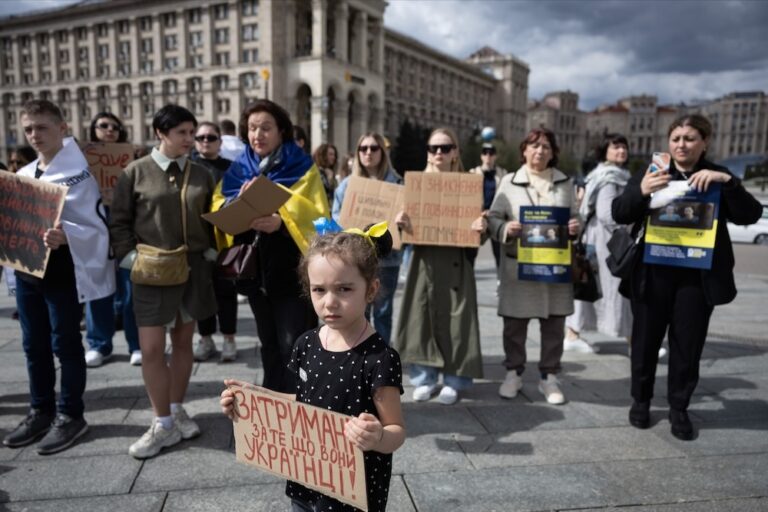For two weeks, the world's attention was fixated upon the Sochi Winter Olympics, as many anticipated Russia’s response to an expected influx of protestors for LGBT and environmental rights, however during the Olympics relatively few activists spoke out.
For two weeks, the world’s attention was fixated upon the Sochi Winter Olympics, but not only for the fun of the Games. A sharp eye was turned on Russia as many anticipated the country’s response to an expected influx of protestors for LGBT and environmental rights, along with various other issues for which Russia has faced criticism internationally. The Olympics themselves passed, for the most part, without major public embarrassment for Putin, aside from the whipping of Pussy Riot members by Cossacks. This led representatives of the Russian government, such as the Russian Ambassador to Canada, Georgiy Mamedov, to proclaim that non-Russians shouldn’t “believe all these scare stories about persecution of gays in Russia. It’s not the case.”
However, with documented cases of persecution, Mamedov’s words ring a bit hollow. Such incidents as a Russian newspaper editor being fined for running a story where an interviewee said “homosexuality is normal,” and a harrowing video released by Human Rights Watch documenting how gay men in Russia were being viciously beaten in the streets, would suggest there is cause for serious concern about freedom of expression in Russia.
But these events preceded the start of the Games, and during the Olympics relatively few activists spoke out. For the few that did, the backlash was fierce. This was clear in the arrest of a demonstrator who had staged a one-man protest against the sentencing of environmental activist Yevgeny Vitishko. Similarly so in the case of former Italian MP and gay rights activist Vladimir Luxuria, who was detained by police in Sochi after she was spotted carrying a rainbow flag emblazoned with the slogan “Gay is OK.” However, aside from the detention of several activists there was very little in the way of protests proper at the Sochi Olympic Games.
In addition to LGBT demonstrators, environmental activists had been decrying the impact of the Olympics for some time. Activists were concerned with the high carbon emissions being produced as a result of the construction and operation of the Sochi Olympics, which contradicted the official position that the Games would be carbon neutral. A massive demonstration during the Games was cancelled when environmentalists were offered a more meaningful chance to speak directly to Russian government representatives. An opportunity like this is incredibly rare, and coincidentally diverted international attention from the environmental impact of the Olympic Games. Environmental activists less willing to compromise were threatened or jailed to ensure their silence.
It appears that standard procedure for the Russian government during the Olympics was to minimize demonstrations by preventing activists and would-be protestors from assembling in the first place. President Vladimir Putin created special protest zones for the Games to some fanfare from state-owned media. In practice, however, the zone was several miles away from an Olympic site and the only protestor making use of it was a lone pro-Putin demonstrator.
Journalists who sought an opportunity to conduct investigative reporting in a Russia placed on the world stage were prevented from doing so by pervasive surveillance. The U.S. State Department warned visitors that they should forsake any “expectation of privacy” and that all electronic communications should be “assumed to be monitored.” Speaking to the CBC, security services expert Andrei Soldatov speculated that “these surveillance measures were conscientiously made public … to send a message.”
Self-censorship amongst journalists in Russia is unfortunately not uncommon, as there is a rich history of violent retribution for journalists who publish unfavourable stories, and the Olympic Games proved to be another topic of contention. Some stories documented corruption stemming from the Olympic Games, such as massive construction contracts awarded to companies with close ties to Putin, but there was a noticeable chill on reporting about Sochi.
Journalists attempting to report on stories like these are often faced with a wide range of threats, from financially crippling legal action to outright physical crippling in the form of vicious beatings. In the last decade, more than 16 journalists have been murdered in Russia, and with a pervasive culture of impunity, many of these murders go unsolved as evidence is mysteriously lost and investigators drag their heels. As the Olympics grew nearer, there was a concerted effort to stifle any criticism in the media using bribes, threats, and worse. However, it was not only Russian journalists who faced such treatment. Foreign journalists faced persecution within Russia in the run-up to Sochi as well, as a Norwegian TV crew was repeatedly harassed, detained and threatened with imprisonment by Russian officials during a November 2013 reporting trip to Sochi.
While these violations of free expression and attempts to muzzle press freedom are undoubtedly egregious, they pale in comparison to the shadow cast by Russia’s involvement in the Ukrainian protests. In the midst of the Games, while the eyes of the world were firmly focused on athletics, the Russian government was urging former Ukrainian president Viktor Yanukovych to end the uprising against him immediately, going so far as to threaten withholding a $15 billion loan and cutting off Russian-supplied natural gas, a major source of energy for the country.
Since the closing ceremonies in Sochi, Russia has become more open in its refusal to let go of influence in Ukraine. In recent days, Putin has gone so far as to argue that the grassroots protest movement in Kiev was the result of a “Western-backed coup” and has made it abundantly clear that the country’s new government faces the impossible choice between territorial integrity and freedom from Russian interference. With another wave of violent protests taking place, this time in the pro-Russian eastern region of Ukraine, and a Russian “stabilization force” in Crimea, secession seems to be a very real possibility.
Anyone concerned with the Russian government’s attitudes towards press freedom and free expression could consider its treatment of the Sochi Winter Olympics to be a window onto the Kremlin’s broader policies when it comes to dissent. With years of planning leading up to the Games, the Russian government had ample time to set the stage to their liking, silencing activists and journalists who might pierce the facade of their carefully managed global image. The methods used by the Russian government to silence free expression have been prevalent in Russia long before the Olympics, and the relatively silent Games further demonstrate how effective Russia has become at creating the illusion of a state without discord. The actions, both covert and overt, taken against demonstrators, journalists, and activists at pre- and post-Sochi show the extent to which Putin is willing to go to stamp out such discord.
Want to catch up on free expression violations throughout the Sochi Olympics? Check out our comprehensive timeline of the Games: #WatchSochi.
José Gonzalez is a freelance journalist currently working in Toronto, Ontario.
This article was originally published on cjfe.org on 6 March 2014.


